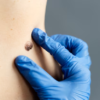Understanding Epiglottitis: An Ayurvedic Perspective
Understanding Epiglottitis: An Ayurvedic Perspective is a potentially life-threatening condition characterized by inflammation of the epiglottis, a flap of tissue that covers the windpipe during swallowing. While it is commonly associated with bacterial infections, particularly in children, its implications can extend to adults as well. The condition can lead to severe respiratory distress and requires immediate medical attention. In this blog, we will explore epiglottitis through the lens of Ayurveda, a holistic system of medicine with roots in ancient India, and discuss its management using Ayurvedic principles.
What is Epiglottitis?

The epiglottis plays a crucial role in preventing food and liquids from entering the trachea during swallowing. When it becomes inflamed, it can obstruct the airway, leading to symptoms such as:
- Severe sore throat
- Difficulty swallowing
- Hoarseness
- Stridor (a high-pitched wheezing sound)
- Difficulty breathing
- Fever
Historically, epiglottitis was most commonly caused by bacterial infections, particularly by Haemophilus influenzae type b (Hib). However, with the advent of vaccines, the incidence has decreased. Viral infections, fungal infections, and allergic reactions can also contribute to the condition.
Ayurvedic Understanding of Epiglottitis
In Ayurveda, health is viewed as a balance between the body, mind, and spirit. The system emphasizes the importance of maintaining harmony within the body’s three doshas: Vata, Pitta, and Kapha. Each dosha corresponds to specific physiological and psychological functions.
- Vata is associated with movement and communication.
- Pitta governs transformation and metabolism.
- Kapha is linked to structure and stability.
From an Ayurvedic perspective, epiglottitis can be viewed as an imbalance, particularly involving Pitta dosha, which is responsible for heat and transformation in the body. When Pitta is aggravated, it can lead to inflammation and infection. Symptoms of epiglottitis can be interpreted as an excess of Pitta in the throat area, causing irritation and swelling.
Causes of Epiglottitis in Ayurveda
In Ayurveda, the causes of epiglottitis can be categorized into several factors:
- Dietary Factors: Consuming excessively hot, spicy, or oily foods can aggravate Pitta. Foods that are difficult to digest may also contribute to inflammation.
- Infections: As in conventional medicine, infections (bacterial, viral, or fungal) can trigger an inflammatory response. Ayurvedic texts often refer to these infections as Ama (toxins) that accumulate in the body.
- Environmental Factors: Exposure to environmental toxins, smoke, or allergens can disturb the balance of doshas and lead to conditions like epiglottitis.
- Emotional Stress: Stress and anxiety can also influence doshic balance, particularly aggravating Pitta.
Ayurvedic Diagnosis
Diagnosis in Ayurveda involves a comprehensive approach that includes:
- Pulse Diagnosis: Ayurvedic practitioners assess the pulse to determine the doshic balance and identify imbalances.
- Observation of Symptoms: The practitioner will carefully evaluate the patient’s symptoms, lifestyle, and dietary habits.
- Patient History: Understanding the patient’s medical history, emotional state, and environmental exposure is crucial.
Treatment Strategies in Ayurveda
The treatment of epiglottitis in Ayurveda focuses on restoring balance to the doshas, primarily reducing excess Pitta. This can be achieved through dietary modifications, herbal remedies, lifestyle changes, and therapies. Here are some key strategies:
- Dietary Adjustments:
- Cooling Foods: Incorporate cooling, soothing foods like cucumbers, melons, and leafy greens to help reduce heat in the body.
- Avoid Spicy and Oily Foods: Limit foods that are overly spicy, acidic, or oily, as they can aggravate Pitta.
- Hydration: Drink plenty of water, herbal teas, and soothing broths to keep the throat hydrated.
- Herbal Remedies:
Ayurvedic herbs can be beneficial in reducing inflammation and supporting the immune system. Some notable herbs include:
- Turmeric (Curcuma longa): Known for its anti-inflammatory properties, turmeric can help reduce swelling.
- Ginger (Zingiber officinale): Ginger can assist in alleviating throat irritation and has antimicrobial properties.
- Licorice (Glycyrrhiza glabra): This herb is soothing for the throat and can help reduce inflammation.
- Tulsi (Holy Basil): Known for its adaptogenic and immune-boosting properties, Tulsi can help combat infections.
- Panchakarma Therapies:
Panchakarma is a set of detoxification procedures that can help balance doshas and eliminate toxins. Some therapies that may be beneficial include:
- Gandusha: Oil pulling with sesame or coconut oil can soothe the throat and reduce inflammation.
- Nasya: Administering herbal oils through the nasal passages can help clear respiratory passages and reduce swelling.
- Steam Inhalation: Inhaling steam infused with eucalyptus or menthol can help ease throat discomfort and improve breathing.
- Lifestyle Modifications:
- Stress Management: Engage in practices like yoga, meditation, and deep breathing exercises to reduce stress and promote relaxation.
- Adequate Rest: Ensure proper rest and sleep to support the body’s healing processes.
- Avoid Exposure to Irritants: Minimize exposure to smoke, pollution, and allergens that can aggravate respiratory issues.
Preventive Measures
Preventing epiglottitis involves maintaining a balanced lifestyle and being mindful of dietary choices. Some preventive measures include:
- Balanced Diet: Emphasize a diet that is appropriate for your dosha, focusing on whole foods, fresh fruits, and vegetables.
- Regular Exercise: Engage in regular physical activity to maintain overall health and balance.
- Immunizations: Stay up to date with vaccinations to prevent infections, particularly in children.
- Hygiene Practices: Practice good hygiene, including handwashing and avoiding close contact with sick individuals.
When to Seek Medical Attention
While Ayurveda offers valuable insights and treatment options for epiglottitis, it is crucial to seek immediate medical attention if you or someone else exhibits severe symptoms such as:
- Difficulty breathing or swallowing
- High fever
- Stridor
- Rapid heartbeat
These symptoms may indicate a medical emergency that requires conventional treatment, such as antibiotics or emergency airway management.
Conclusion
Epiglottitis is a serious condition that can have significant implications for health. By understanding it through the Ayurvedic lens, we can appreciate the importance of balance within the body and the role of dietary and lifestyle choices in promoting health. While Ayurvedic remedies and practices can provide supportive care, it is essential to recognize when conventional medical intervention is necessary. A holistic approach that combines both systems can offer the best outcomes for those affected by epiglottitis. Always consult a qualified healthcare professional before making any significant changes to your health regimen.
By embracing both Ayurvedic wisdom and modern medicine, we can work towards achieving optimal health and well-being.








Leave a reply